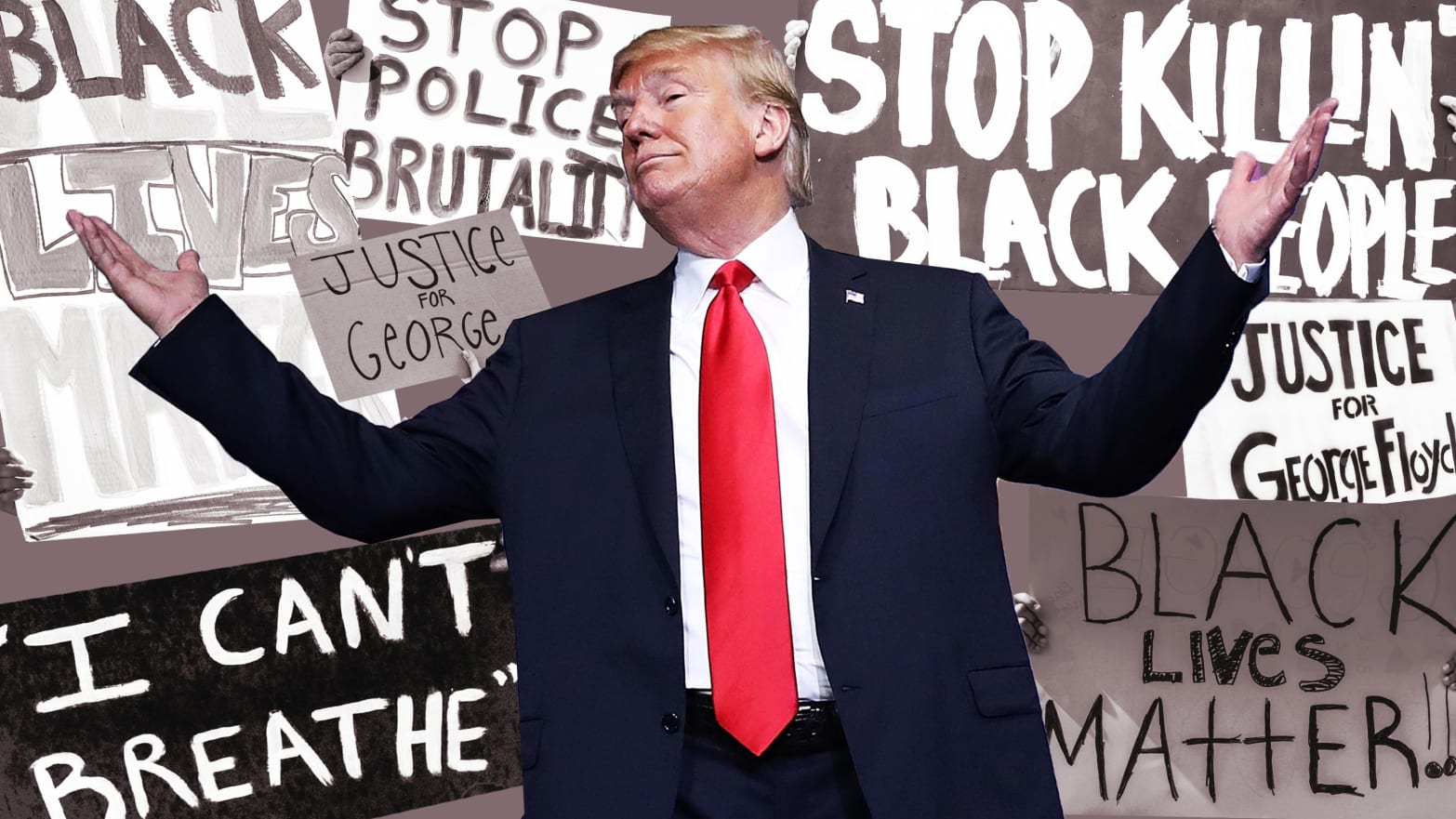Eric Garner. Sandra Bland. Philando Castile. Alton Sterling. Michael Brown. Their names, and those of far too many other unarmed African-Americans killed by police (or in their custody) have become a grim litany etched in the memories of a whole generation of Americans.
And now, George Floyd, who was violently detained for a “forgery in progress” on Monday by as many as four Minneapolis police officers, including one with a knee pressing his neck into the ground, has become yet another casualty of excessive force.
Floyd’s death stands apart because his death represents perhaps the most high profile case of this nature to occur during Trump’s presidency. His predecessor, Barack Obama was routinely confronted with these kinds of tragedies. And as the first black president and a progressive, he was not only expected to weigh in on them, but was practically required to by his base and the media establishment.
Nearly every time one of these high-profile cases occurred, the president stepped up to offer compassion and in some cases, express his disgust. And while his legislative remedies to address the problem were largely stymied, at the very least Obama was able effectively to commiserate with the portion of the public that was outraged; and shine a spotlight on the issue of racially biased policing.
No one expects Donald Trump to similarly elevate the discourse on this subject. On Wednesday, in his first remarks on the case, he conceded that Floyd’s death was “very sad,” but offered no other thoughts other than promising that the FBI and Justice Department will look into the case.
On Twitter, where Trump is more freewheeling and candid (for better or worse), he praised local law enforcement, offered condolences to Floyd’s family and promised that “justice will be served” without elaborating on what that would mean, or for who.
We can only hope that the president doesn’t try to assert himself too much further in the fallout of the Floyd case; given his history on issues of race, he would likely only add insult to fatal injury.
Early Friday morning, hours after this article first posted, Trump bore that prediction out:
Of course, Trump bears no direct responsibility for Floyd’s death, but the president’s embrace of racist language, ideas and policies has heightened the perception in this country that black life is expendable.
In the past, it has been politically expedient for Trump to defend all police no matter what, and to abuse anyone who deigns to criticize them. During the 2016 campaign, he cast blanket aspersions on all Black Lives Matter activists, claiming they’re only “looking for trouble” and even worse, blaming them for instigating the deaths of police officers, all while waxing nostalgic about the “good old days” where protesters could be beaten with impunity.
As president, he has shown far more anger at African-American NFL athletes who silently protest police brutality than, say, a foreign government his own intelligence agencies believe brutally slaughtered a U.S.-based journalist.
Even setting issues of race and policing aside, it is not in Trump’s nature to show empathy as we have seen in his response to the pandemic that has claimed 100,000 American lives. As the U.S. crosses this horrendous milestone, he’s spent the better part of a week tweeting juvenile insults about his enemies, indulging in conspiracy theories and threatening the very social media platform on which he spends much of his time.
Meanwhile, the president has proven time and again for over 40 years, that he will never acknowledge the existence (let alone comprehend the nuances) of institutional racism or admit how he has benefited from it, as he would say, tremendously. Instead he’s whined that ‘an educated black” stands a better chance of benefiting from the American dream than he does.
If anything, Trump staying relatively silent would be a relief coming from a man who instinctively gravitates to the people causing black pain rather than those trying to alleviate it.
If in the wake of Floyd’s death, people start to point the finger at Trump’s rhetoric endorsing “tough” police tactics, he and many of his supporters will defensively seek excuses for the Minneapolis police. They will insist that we don’t know what occurred prior to the video — as if any action by a single, unarmed suspect could justify his fate. They will say that people looting a Target is somehow more heinous than an officer of the law suffocating a man with his knee.
Others will, with a straight face, suggest that Floyd couldn’t be suffocating if he was able to articulate it — the same inhumane reaction that was repeated endlessly after the killing of Eric Garner. They perceive an alternative universe where speaking out against police brutality somehow is responsible for inspiring more of it, and where the real victims are cops who are subjected to unreasonable accountability for their actions.
People in this universe, and particularly people of color, are keenly aware of a very different status quo, where heroic people on their phones are seemingly the only thing that stands between many of us and the truth and where the president openly encourages police to rough up suspects without fear of reprisal.
They know they are not safe on the street, in a store, or even in their own home. You can add bird-watching to that litany.
This same week,another racially fraught viral video out of New York City caused a sensation, but, gratefully, not a death. In the clip, a white woman named Amy Cooper, after being asked by a bird-watching black man to put her dog on a leash (a regulation in Central Park), calls the police to falsely claim “an African-Ammerican man” was threatening her life.
The most chilling thing about the video is seeing Cooper, who is not an actress, perform faux trauma to a 911 operator with such instinctual ease.
The video footage exposed Cooper as a liar and cost her job (and her dog, that she manhandled terribly throughout the clip). Is this a happy ending? Well, not for any viewer of color who still has to live every day with the existential fear that the black man who filmed her must have felt — that a trigger-happy policeman might have responded to her call for help.

